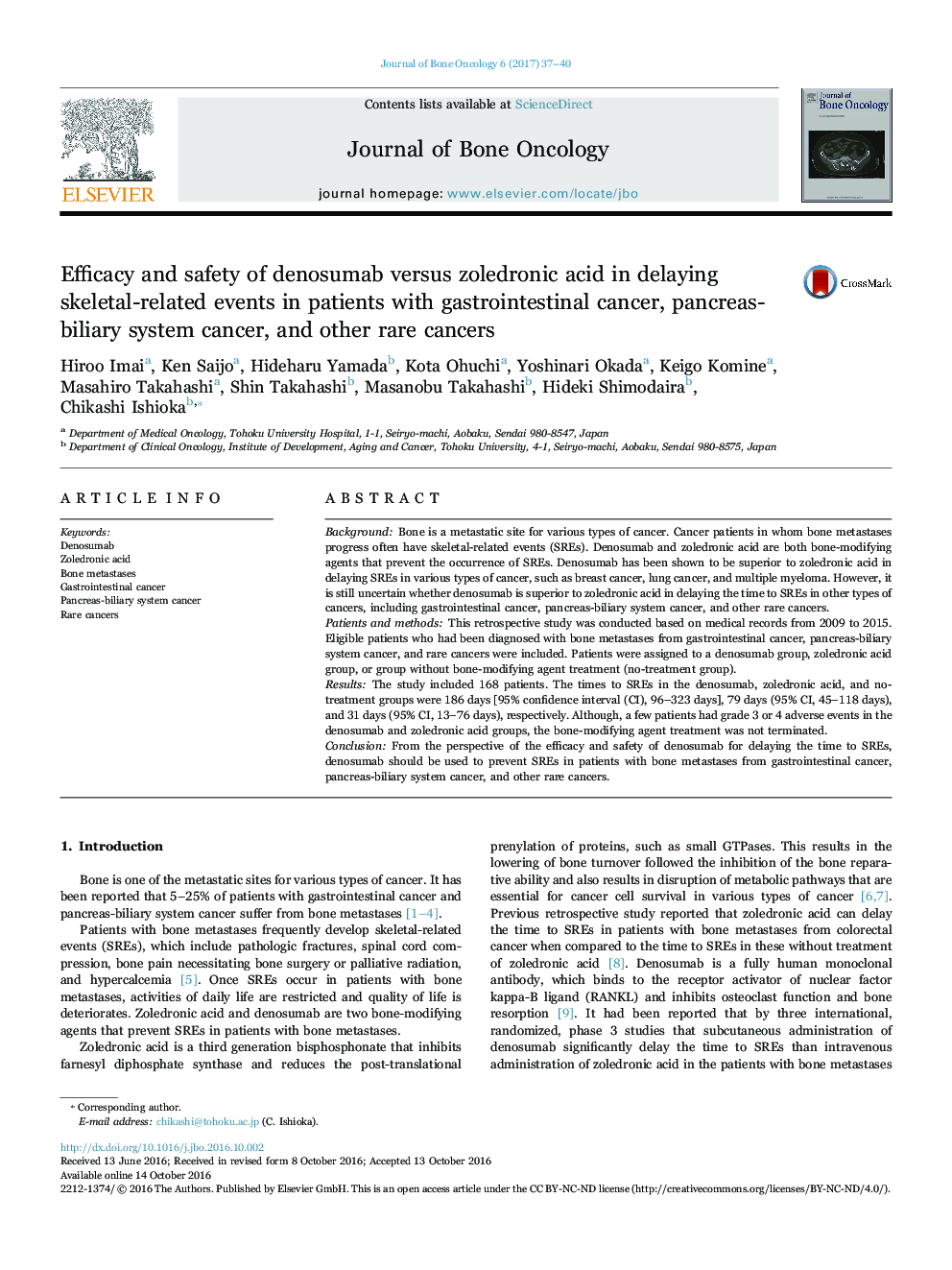| Article ID | Journal | Published Year | Pages | File Type |
|---|---|---|---|---|
| 5527686 | Journal of Bone Oncology | 2017 | 4 Pages |
BackgroundBone is a metastatic site for various types of cancer. Cancer patients in whom bone metastases progress often have skeletal-related events (SREs). Denosumab and zoledronic acid are both bone-modifying agents that prevent the occurrence of SREs. Denosumab has been shown to be superior to zoledronic acid in delaying SREs in various types of cancer, such as breast cancer, lung cancer, and multiple myeloma. However, it is still uncertain whether denosumab is superior to zoledronic acid in delaying the time to SREs in other types of cancers, including gastrointestinal cancer, pancreas-biliary system cancer, and other rare cancers.Patients and methodsThis retrospective study was conducted based on medical records from 2009 to 2015. Eligible patients who had been diagnosed with bone metastases from gastrointestinal cancer, pancreas-biliary system cancer, and rare cancers were included. Patients were assigned to a denosumab group, zoledronic acid group, or group without bone-modifying agent treatment (no-treatment group).ResultsThe study included 168 patients. The times to SREs in the denosumab, zoledronic acid, and no-treatment groups were 186 days [95% confidence interval (CI), 96-323 days], 79 days (95% CI, 45-118 days), and 31 days (95% CI, 13-76 days), respectively. Although, a few patients had grade 3 or 4 adverse events in the denosumab and zoledronic acid groups, the bone-modifying agent treatment was not terminated.ConclusionFrom the perspective of the efficacy and safety of denosumab for delaying the time to SREs, denosumab should be used to prevent SREs in patients with bone metastases from gastrointestinal cancer, pancreas-biliary system cancer, and other rare cancers.
